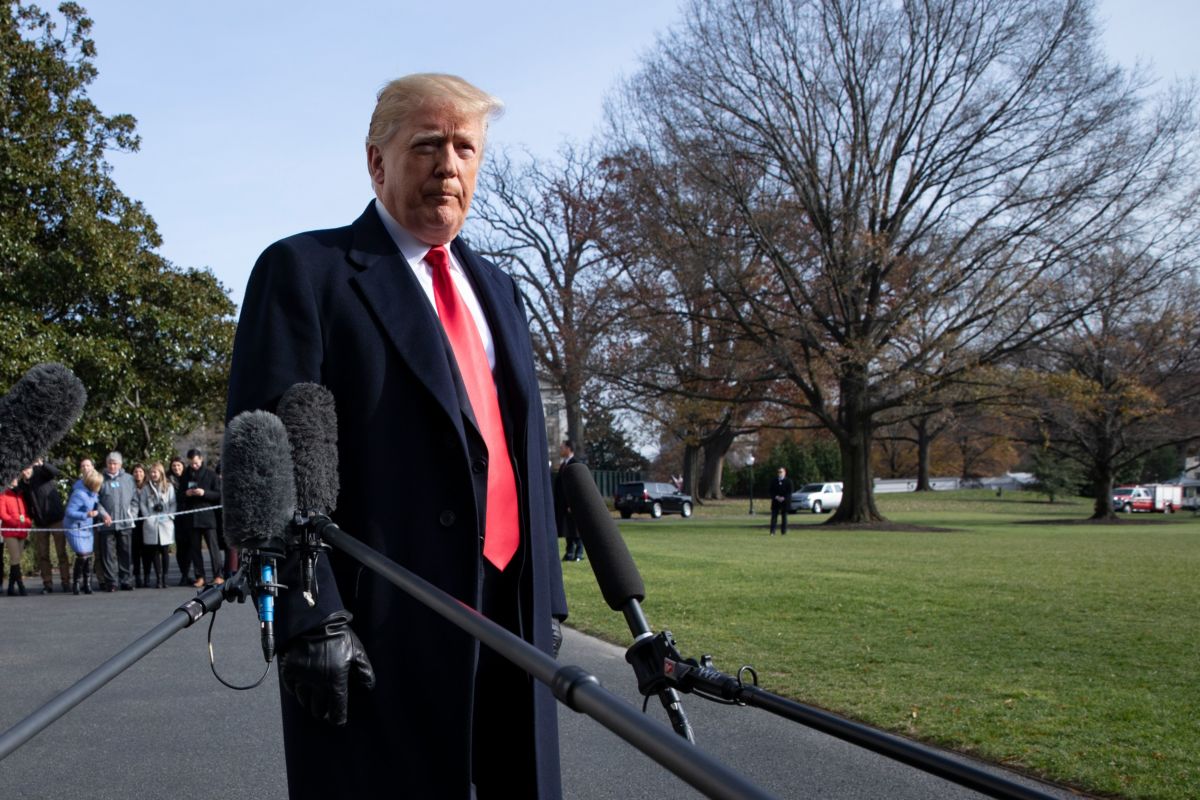Legal experts and prosecutors are pushing back against the claim President Donald Trump made early Monday morning when he said his secret payments to silence women claiming extramarital sexual affairs with him were nothing more than a “simple private transaction.”
Trump was referring to the recent court filings involving his former personal lawyer and fixer Michael Cohen and the revelations that Cohen, at the order of the president, created payment schemes to get both porn actor Stormy Daniels and former playboy model Karen McDougal to be quiet about the affairs they claim to have had with Trump while he was married to First Lady Melania Trump. Trump has denied the affairs, but previously pretended not to know anything about the payments.
Trump calls creating a shell company to pay off a porn star from disclosing an extramarital affair weeks before a presidential election a “simple private transaction.”
It’s also *smoking gun. pic.twitter.com/TMao7CLeAO
— Kyle Griffin (@kylegriffin1) December 10, 2018
New York Times columnist Jim Rutenberg noted in response to Trump’s morning tweet, “In Stormy Daniels/Karen McDougal hush $ deals prosecutors didn’t see ‘simple transactions,’ they saw a brazen effort to deceive the voting public through illegal means meant to hide that deception from campaign disclosure requirements.”
As Reuters notes in its reporting on the president’s claim, “Under US law, campaign contributions, defined as things of value given to a campaign to influence an election, must be disclosed. Such payments are also limited to $2,700 per person.”
According to a Saturday column in the Times by government watchdog experts Barry Berke, Noah Bookbinder and Norman Eisen, the sentencing memos released last week are, in fact, quite damaging to Trump and put him at legal risk:
The Trump Organization’s reimbursements to Mr. Cohen for payments were fraudulently disguised as legal fees — and, according to the memo, were approved by senior executives at the organization. The New York prosecutors also disclosed that they are investigating additional unspecified matters involving Mr. Cohen and, presumably, the Trump Organization. In light of these disclosures, the likelihood that the company and the Trump campaign face charges is now high.
Although President Trump may avoid a similar fate because the Justice Department is unlikely to indict a sitting president, he could be named as an unindicted co-conspirator, as was President Richard Nixon, or charged if he leaves office before the statute of limitations runs out (most likely in 2022).
“Contrary to the president’s claim that all of this ‘totally clears’ him,” the trio of legal experts wrote, “the danger to Mr. Trump, his business and his campaign has compounded significantly.”
In response to Trump’s morning tweet on Monday, the Washington Post reports that “prosecutors disagree” with the president’s latest claim:
In morning tweets, Trump says payments to silence women were a “simple private transaction,” not illegal campaign contributions.
Prosecutors disagree. https://t.co/BnkUE59Wqs
— The Washington Post (@washingtonpost) December 10, 2018
Appearing on CNN’s State of the Union on Sunday morning, Rep. Jerrod Nadler (D-NY) said that what Cohen is alleging transpired during the 2016 campaign in terms of Trump’s personal payments to the women would be a clear campaign law violation and could be grounds for impeachment:
Rep. Jerry Nadler: Illegal payments would “certainly” be “impeachable offenses” if directed by President Trump https://t.co/6v4G1zc3VP pic.twitter.com/VumZGIXiqz
— The Hill (@thehill) December 10, 2018
Join us in defending the truth before it’s too late
The future of independent journalism is uncertain, and the consequences of losing it are too grave to ignore. To ensure Truthout remains safe, strong, and free, we need to raise $31,000 in the next 48 hours. Every dollar raised goes directly toward the costs of producing news you can trust.
Please give what you can — because by supporting us with a tax-deductible donation, you’re not just preserving a source of news, you’re helping to safeguard what’s left of our democracy.
